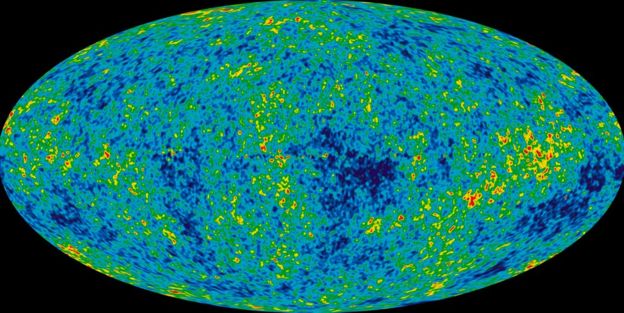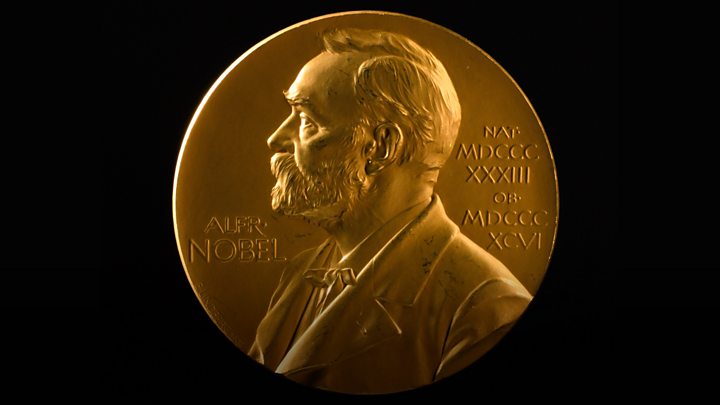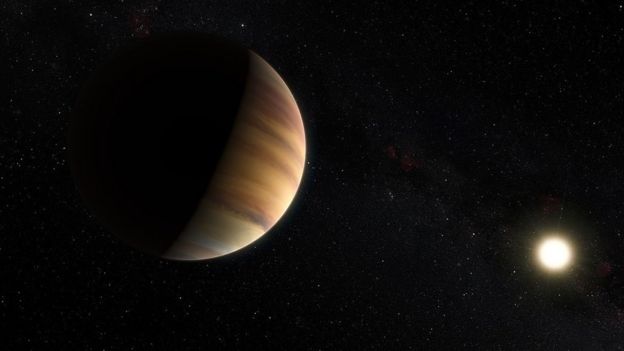Big Bang theory ...and a Sun like star ... finally, after 25 years ...Jackpot!

Three scientists have been awarded the 2019 Nobel Prize in Physics for "ground-breaking" discoveries about the Universe.
James Peebles, Michel Mayor and Didier Queloz were announced as this year's winners at a ceremony in Stockholm.
Peebles was honoured for work on the evolution of the Universe, while Mayor and Queloz won for their discovery of a planet around a Sun-like star.
The winners will share the prize money of nine million kronor (£738,000).
Reacting to the news, Prof Queloz told BBC News: "It's unbelievable," adding: "Since the discovery 25 years ago, everyone kept telling me: 'It's a Nobel Prize discovery'. And I say: 'Oh yeah, yeah, maybe, whatever.'"
But in the intervening years, he more-or-less "forgot" about the discovery: "I don't even think about it," he said. "So frankly, yes, it came as a surprise to me. I understand the impact of the discovery, but there's such great physics being done in the world, I thought, it's not for us, we will never have it.
"I'm a bit shocked right now, I'm still trying to digest what it means."
How our cells sense oxygen wins Nobel prize
 Image copyrightNASA
Image copyrightNASA
Ulf Danielsson, a member of the Nobel Committee, commented: "Both these prizes... tell us something essential, something existential about our place in the Universe."
"The first one, tracing the history back to an unknown origin, is so fascinating. The other one tries to answer these questions about: 'are we alone - is there life anywhere else in the Universe?'"
Winnipeg, Canada-born James Peebles was honoured for his contributions to the understanding of the evolution of the Universe and Earth's place in the cosmos.
With others, he predicted the existence of cosmic microwave background (CMB) radiation, the so-called afterglow of the Big Bang.
By studying the CMB, scientists have been able to determine the age, shape and contents of the Universe.
"Cosmic background radiation was discovered in 1965, and turned out to be a goldmine for our understanding of how the Universe developed from its early childhood to the present day," said Mats Larsson, chair of the Nobel physics prize committee.
"Were it not for the theoretical discoveries of James Peebles, the wonderful high-precision measurements of this radiation over the last 20 years would have told us almost nothing."

The 84-year-old cosmologist, who is now based at Princeton University in New Jersey, US, also made major contributions to the theory of dark matter and dark energy, the mysterious components which together make up some 95% of the Universe.
In addition, he helped develop the theoretical framework of structure formation - which describes how galaxies and other large structures emerged from earlier density fluctuations in the Universe.
Asked what he considered his most important contribution, Prof Peebles said he was "hard-pressed to say", adding that his work had been collaborative.
"It's a life's work," he told the news conference at the Royal Swedish Academy of Sciences in Stockholm.
Michel Mayor and Didier Queloz were awarded the prize for finding 51 Pegasi b, a gas giant orbiting a star 50 light-years away.
 Image copyrightESO / M KORNMESSER
Image copyrightESO / M KORNMESSER
It was the first exoplanet to be discovered orbiting a star like our own.
They used the pioneering radial velocity technique. This detects distant worlds indirectly, by measuring how a parent star "wobbles" when it is tugged on by the gravity of an orbiting planet.
The astronomers were working at the University of Geneva, Switzerland, when the discovery was made. Mayor, 77, is still there as a professor emeritus; Queloz, 53, now holds positions at Geneva and at the University of Cambridge, UK.
Michael Moloney, chief executive officer of the American Institute of Physics, said: "[The laureates'] groundbreaking work on discovering the fundamental nature of the Universe and new worlds in distant solar systems has opened up whole new areas of research in cosmology and exoplanet science.
"The discovery of a planet orbiting a star outside our own system has changed our perceptions of our place in the Universe - a Universe that still holds many mysteries to solve."
for more see https://www.bbc.com/news/science-environment-49960497


